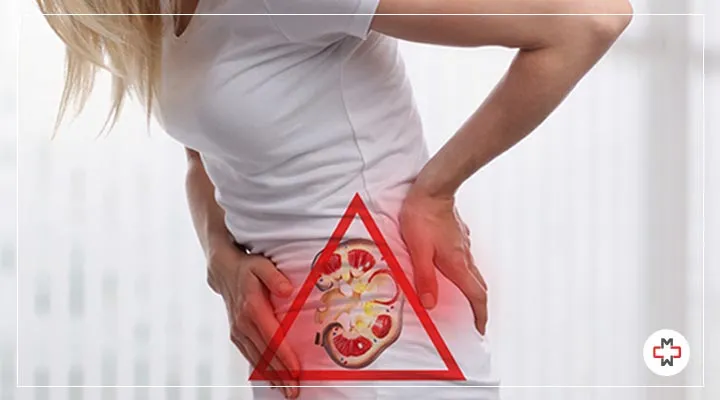Discovering Kidney Stones vs UTI: A Clear Overview of Reasons, Signs And Symptoms, and Solutions
Discovering Kidney Stones vs UTI: A Clear Overview of Reasons, Signs And Symptoms, and Solutions
Blog Article
Exploring the Effects and Causes of Kidney Stones in Comparison to Urinary System System Infections: A Comprehensive Overview
The expedition of kidney rocks and urinary system system infections (UTIs) reveals a complex interplay of symptoms and underlying causes that require cautious assessment. What are the crucial distinctions in their signs, and just how might these educate therapy methods?
Introduction of Kidney Stones
Kidney rocks, likewise referred to as renal calculi, form when certain substances in the urine crystallize and aggregate, leading to the growth of tough down payments within the kidneys. These rocks can vary in size, ranging from a grain of sand to a golf ball, and can be made up of numerous products, the most common being calcium oxalate, uric acid, struvite, and cystine. The formation of kidney rocks is affected by a number of elements, including nutritional behaviors, liquid intake, and genetic proneness.
Signs and symptoms of kidney stones may consist of serious pain in the back or side, blood in the urine, nausea, and constant peeing, especially as the stone relocates with the urinary system. Medical diagnosis normally includes imaging studies such as ultrasound or CT scans, alongside urinalysis to recognize the stone's composition.
Therapy choices vary based upon the size and kind of rock, as well as the extent of signs (Kidney Stones vs UTI). Small rocks may pass normally with boosted fluid consumption, while larger rocks may call for medical treatments such as lithotripsy or surgical elimination. Comprehending the pathophysiology and risk aspects connected with kidney rocks is vital for effective avoidance and management
Review of Urinary System Infections
Urinary system infections (UTIs) are usual microbial infections that affect any type of component of the urinary system, consisting of the kidneys, ureters, bladder, and urethra. They mostly occur when bacteria, commonly from the stomach tract, enter the urinary system, leading to inflammation and infection.
The occurrence of UTIs is significantly greater in females than men, mostly because of anatomical differences, such as a shorter urethra. Threat elements include sex-related task, certain contraceptive approaches, urinary system retention, and dehydration. The diagnosis of UTIs is normally confirmed with urine examinations, which may reveal the visibility of microorganisms, white blood cells, or red cell.

Symptoms of Kidney Stones
The pain connected with kidney rocks can manifest in various means, usually leading people to seek medical focus. Among the most common signs and symptoms is extreme pain, generally localized in the reduced back or side, which may radiate to the abdominal area or groin. This pain, frequently referred to as sharp or cramping, can take place all of a sudden and may rise and fall in strength.
Additionally, people may experience hematuria, or blood in the urine, which can vary from microscopic quantities to visible staining. This sign might be gone along with by changes in urinary system routines, such as increased regularity or seriousness, along with discomfort throughout urination. Nausea or vomiting and throwing up are also widespread, frequently arising from the body's reaction to extreme pain.
In many cases, individuals may experience high temperature and cools, particularly if a second infection develops because of the blockage triggered by the stones. Generally, the mix of severe pain, hematuria, modified urinary system patterns, and gastrointestinal signs and symptoms can offer considerable insight right into the presence of kidney stones, necessitating punctual medical assessment and treatment. Recognizing these symptoms is important for prompt medical diagnosis and reliable management of the condition.
Symptoms of Urinary Tract Infections
Infections within the urinary tract commonly offer an array of distinctive signs that can significantly impact day-to-day live. The most typical signs include a consistent desire to urinate, typically gone along with by a burning feeling throughout urination, referred to as dysuria. Individuals may also experience increased frequency of peeing, generating percentages of pee each time.
Other noteworthy symptoms include cloudy or foul-smelling pee, which may indicate the presence of microorganisms or pus. In some instances, pee may appear red or pink as a result of the visibility of blood, a condition referred to as hematuria. Additionally, people might experience pelvic discomfort or pressure, which can better aggravate the sensation of urgency.
Systemic symptoms might likewise manifest, such as high temperature, cools, and fatigue, specifically if the infection has actually ascended to the kidneys. It is important to identify these signs early, as neglected urinary system infections can result in more extreme problems. Kidney Stones vs UTI. Prompt clinical interest is suggested when these signs are observed, permitting ideal analysis evaluation and therapy to minimize pain and avoid click reference more health and wellness issues
Reasons For Each Problem
Often, kidney rocks and urinary tract infections develop from distinctive yet in some cases overlapping causes that can influence people differently. Dehydration, not enough fluid intake, and high-sodium diet plans can aggravate these conditions, promoting condensation within the see this page urinary system system.

Comprehending these distinct reasons is essential for avoidance and therapy. Kidney Stones vs UTI. While way of living alterations might minimize the danger of kidney rocks, ideal health and timely treatment of urinary system infections are crucial for decreasing their recurrence and linked issues
Final Thought
In summary, kidney rocks and urinary tract infections existing unique symptoms and underlying reasons. Kidney stones are characterized by extreme discomfort and metabolic elements, while urinary system tract infections primarily include bacterial infections resulting in urinary system urgency and discomfort. Although both problems can lead to hematuria, their formation devices differ dramatically. Comprehending these differences is critical for efficient diagnosis and therapy, ultimately enhancing patient end results for those affected by either problem.
The expedition of kidney rocks and urinary tract infections (UTIs) discloses a complex interplay of signs and symptoms and underlying causes that call for mindful examination.Urinary system infections (UTIs) are usual bacterial infections that impact any kind of component of the urinary system, including description the kidneys, ureters, bladder, and urethra.Often, kidney rocks and urinary system tract infections occur from unique yet occasionally overlapping reasons that can affect individuals in different ways.In recap, kidney rocks and urinary tract infections present unique signs and symptoms and underlying causes. Kidney stones are defined by serious discomfort and metabolic factors, while urinary tract infections mainly include microbial infections leading to urinary system necessity and pain.
Report this page